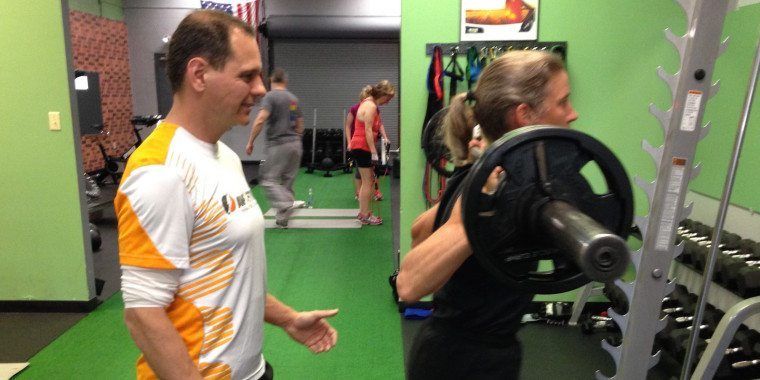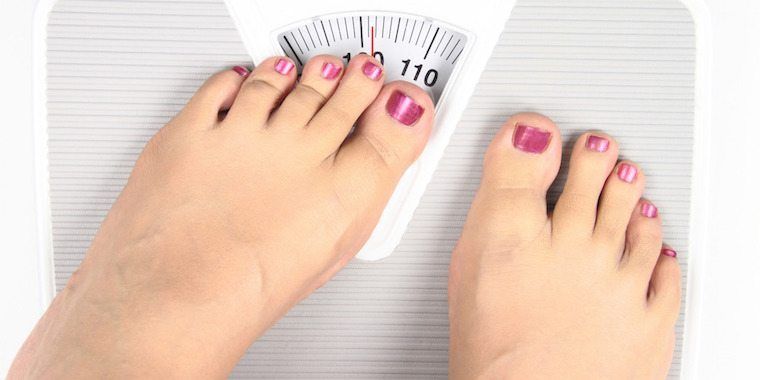BY LINDSAY KUNKEL Courtesy of Fit Mix Mom
Take a guess at the number one reason people work out. To lose weight, of course. We all know that. Unfortunately, we also know that the majority don’t keep it up and don’t reach their goals. They start out strong at the beginning of a new year with big resolutions but fizzle out from boredom, loss of motivation, overtraining, and lack of results. (Sound familiar?)
The truth is, those who keep up a regular fitness routine in the long run are motivated by things other than weight loss—and they’re overall healthier as a result. Losing weight is just a side effect, really. It’s time to STOP exercising because you HAVE to just to lose weight. It’s time to broaden your view and focus on how it makes you feel and the positive effect it has on all aspects of life—not just your waist line.
Here are 10 solid science-backed benefits of exercise (that aren’t weight loss):
Relieves Stress
You can’t avoid stress. The only way to improve it is to manage it. And there’s nothing like a good sweat session to release frustration, anger and tension! Bonus: It helps prevent stress eating, too. Besides that awesome one-healthy-habit-tends-to-lead-to-more effect, a recent study shows that high-intensity workouts affect hunger hormones and lead to decreased food cravings.
Improved Sleep
It is well documented that regular moderate exercise helps you sleep better. It helps regulate daily/nightly rhythms and reduces stress, leading to improvement in both sleep time and quality. In fact, it is a great natural remedy for insomnia. The National Sleep Foundation reports that those who get the recommended 150 minutes of moderate exercise per week experience 65 percent better sleep quality. And check out what awesome things happen when you’re getting better sleep! Note: Consistent long-term sleep improvement is realized when you stick to an exercise routine for at least 16 weeks. So get on it and stick to it!
Energy Gains
It seems counterintuitive—you’re so tired already, how are you going to muster up the energy for a workout? But in reality, a brisk sweat session can actually be invigorating. A blast of feel-good endorphins will do wonders for your energy level and overall mood. Exercise is even an effective therapy for chronic fatigue syndrome. It’s simple—your body was meant to move. Give it what it craves!
Brain Power
Fact: Exercise boosts both short- and long-term cognitive function. The CARDIA study found that higher fitness levels are associated with better executive function, verbal memory, thinking skills, and psychomotor speed. Even one 20-minute burst before an exam can improve scores. This could be because it causes positive changes in the brain that help attention span, focus, and memory. A 2012 study found that the exam performance boost best occurs with a regular routine plus a pre-test workout session.
Improved Memory
Those brain benefits extend into late life as well. Exercise is fast becoming an effective therapy for dementia and Alzheimer’s as research has found that it slows the decline in cognitive function. Older adults who follow a regular exercise program demonstrate better thinking skills. Focusing on strength training in particular can improve memory and stave off symptoms of Alzheimer’s Disease.
Boosts Immunity
Getting adequate exercise reduces your chances of developing many illnesses and diseases, from heart disease to diabetes to osteoporosis and many others. It’s even an important therapy for boosting immune function in cancer patients. But did you know that a regular fitness routine also helps defend against infections like the common cold and flu? The fitter you are, the less likely you are to suffer seasonal sickness—up to 43 percent less likely, according to one study. And if you do get sick, it’ll be less severe.
Endorphins
The stress relief + endorphin release from exercise can help fight depression and anxiety. Long-term exercise has been proven comparable to psychotherapy and drug therapy. Not only can it help improve a bad case of blues, but a continued routine can prevent further episodes. It may seem like the last thing you want to do if you’re feeling down and out, but once you get in the habit, you wouldn’t imagine life without it!
Boosts Confidence
It’s no wonder this would happen. With a better mood, more energy and reduced stress along with increased strength, speed and likely fat loss, you’re sure to have a greater sense of self-esteem. You’ll feel good about your body, your outlook, your future, your goals, etc. The positive effects tend to bleed into all areas of your life!
Fights Addiction
If you’ve been turning to unhealthy habits (like alcohol, smoking, drugs or binge eating), a fitness habit could be just the thing to help you. The stress release, confidence boost, and natural high you get from a workout strengthen addiction treatment. All those positive changes in the brain lessen your cravings for harmful substances. Why not replace a bad habit with a healthy one? After all, “runner’s high” is a real (and beautiful) thing. Go chase that!
Improves Work Performance
By now it’s obvious—exercising makes you a better everything, including a better employee. Obesity is associated with poorer work performance and more missed days, while maintaining a fitness routine builds determination and strength, thus improving your ability to meet and exceed work demands. You’re going to be more focused and productive, plus you’ll likely have less sick days—a major bonus for any boss.
It’s clear to see there’s more than one reason to get your workouts in. Take note, though—moderation is still important. You aren’t going to get the many benefits of exercise if you overdo it. Overtraining can have the opposite effect, leaving you tired, moody, and depressed. It should be something you enjoy, not dread.












